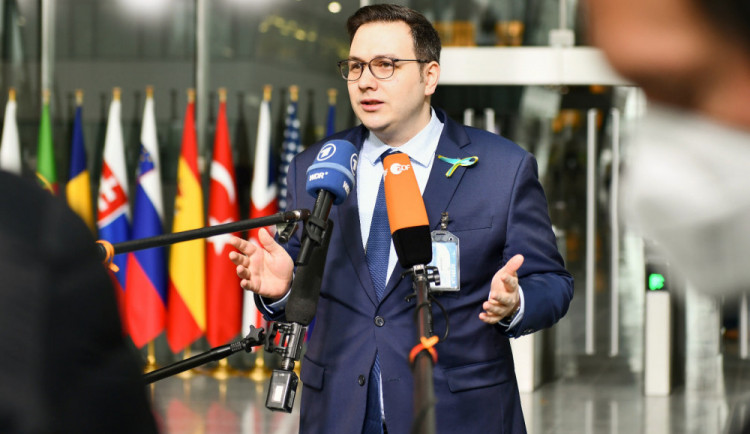Czech Foreign Minister Jan Lipavsky is beginning a visit to Ukraine today, travelling to Zboriv in the west of the country to pay a symbolic tribute to the Czechoslovak legionnaires, members of the Legions voluntary units that contributed to the establishment of Czechoslovakia.
Lipavsky said that his sixth visit to the country, which has been resisting Russian aggression for three and a half years, concerned Czech-Ukrainian relations and further support for Ukraine.
“My visit is about Czech-Ukrainian relations,” he said. “It is about supporting our companies to have a good share in the reconstruction of Ukraine. It is also a political message that we are of course behind Ukraine and its fight against Russian aggression. This is something where we have a common interest.”
“It is also about our support for Ukraine’s future European integration and NATO membership,” he added.
The Battle of Zboriv took place on 1 and 2 July, 1917, and was the first significant appearance of the Czechoslovak Legions on the Eastern Front during World War I. According to historians, the battle had an important influence on the formation of independent Czechoslovakia. The Czechoslovak troops at Zboriv were victorious over twice as many Austro-Hungarian regiments, which also included Czech soldiers. The battle claimed the lives of more than 350 Czechoslovaks.
“It was the strength of the legions that allowed Czechoslovakia as such to come into being,” said Lipavsky. “The powers of the time recognised that Czechoslovakia could exist as an independent state. This should be a great inspiration for us today.” He added that he sees many parallels with the current events in Ukraine.
On Friday, US President Donald Trump will meet his Russian counterpart Vladimir Putin in Alaska. According to NBC News, the White House is still considering inviting Ukrainian President Volodymyr Zelenskiy as well.
Speaking to journalists, Lipavsky insisted that as Europe is currently paying for most of the military aid to Ukraine, it will naturally have a place in the ongoing peace talks.
“At the moment, Europe is paying most of the military aid to Ukraine,” Lipavsky said. “I think Europe will naturally have its place in the negotiations. However, maybe not in this format, I can’t assess that exactly.”
According to Lipavsky, the United States regularly updates its key European partners. “We cannot say that Europe is completely left out, but there is relatively little information, so let’s not think far ahead,” he said of the upcoming negotiations.
“It must be Ukraine that decides what it is willing to agree to and what it is not willing to agree to,” Lipavsky said. He said he considers the territorial integrity of Ukraine to be an inviolable principle.
In the coming days, Lipavsky will address a conference on respect for international humanitarian law, and he will also meet Ukrainian officials.
“I would also like to point out that the Czech Republic is very active in Ukraine; in the whole of Ukraine, even close to the front line. Czech diplomacy promotes our interests there as well,” Lipavsky said.
The leaders of Britain, Finland, France, Italy, Germany and Poland and European Commission President Ursula von der Leyen said in a joint statement on Sunday that the path to peace in Ukraine cannot be determined without Ukraine, and that a ceasefire is a prerequisite for negotiations. Zelenskiy said Kyiv appreciated the European leaders’ statement and fully supported it.
EU diplomacy chief Kaja Kallas announced on Sunday that she had called a meeting of EU foreign ministers for today, in connection with the upcoming meeting between the US and Russian presidents.
Lipavsky said he did not know whether he would be able to join the meeting remotely, but that his deputy would attend.
Bloomberg reported on Friday that Washington and Moscow were drafting a ceasefire agreement for Ukraine that would solidify Russian territorial gains in eastern Ukraine, particularly in the Donbass. Moscow also wants to keep the Crimea peninsula, which it annexed in 2014. Trump spoke at the White House on Friday about a territorial swap “to benefit both sides.”
Ukraine has been resisting large-scale Russian military aggression since February 2022. Zelenskiy said on Saturday that any solution to the Russian-Ukrainian conflict made without Ukraine’s participation would be an anti-peace solution. He added that Ukrainians would not hand over their country to the occupiers.







